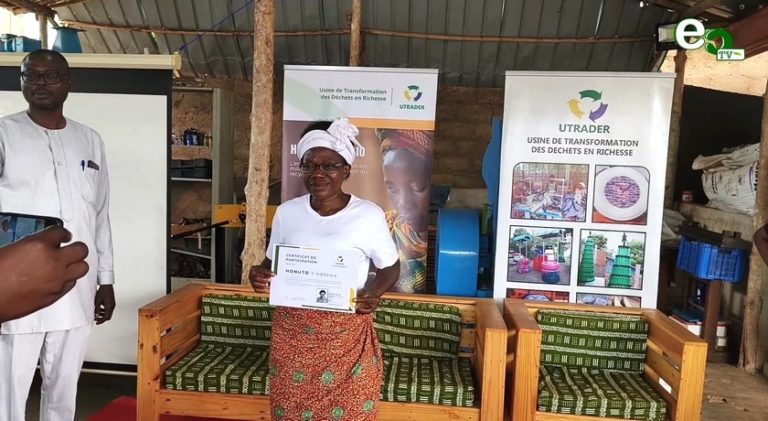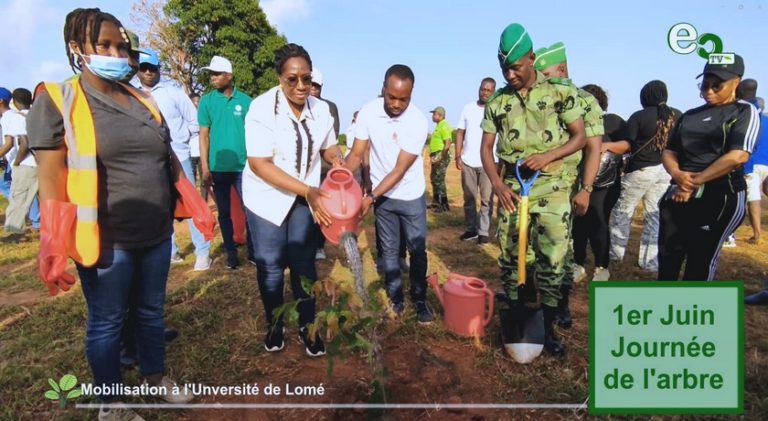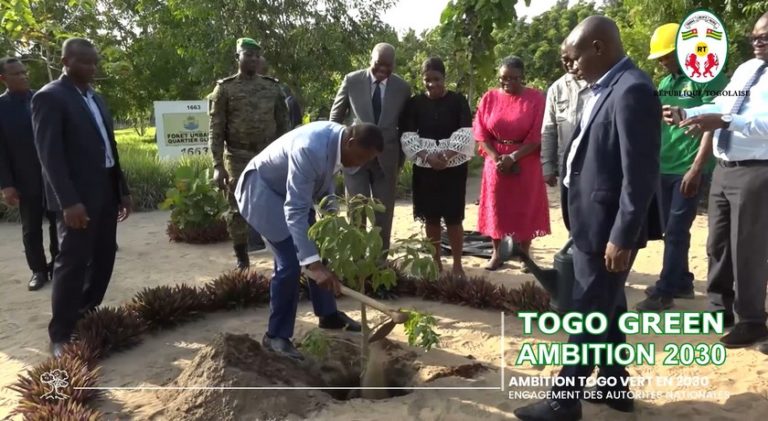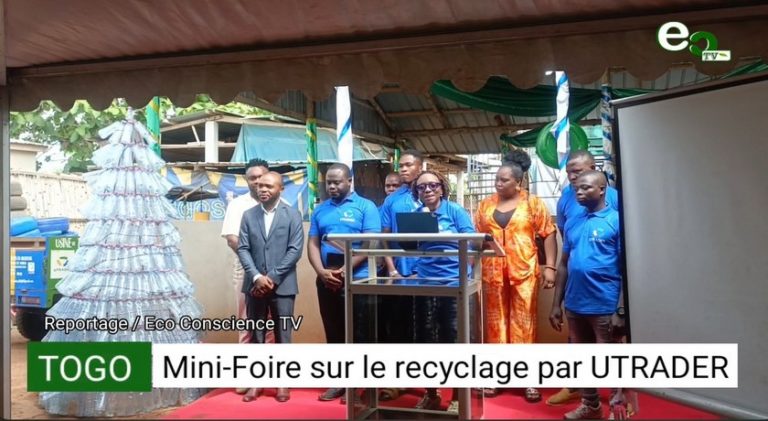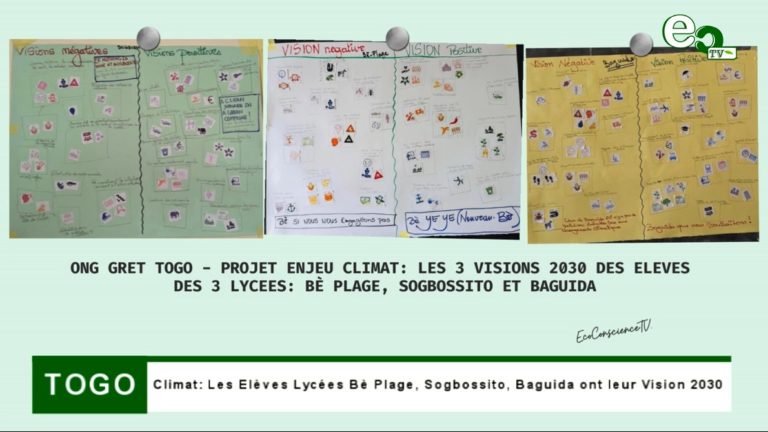The platform will seek to deliver a paradigm shift in addressing environmental degradation in Africa, in both public and private sectors and to develop innovative models. The platform will engender the prerequisite political support, needed institutional structures and adequate human capacity at national and regional levels to ensure integrated environmental management. The environment, though a cross cutting, will remain distinct and adequately harmonized with other sectors and priorities like agriculture, infrastructure and energy. Climate related risks will increasingly be mainstreamed into development and adaptation actions will be carried out in priority regions and sectors.
The Africa Environmental Partnership Platform will learn from the successes and lessons of the Comprehensive Africa Agricultural Development Programme Partnership Platform (CAADP PP) which has provided a framework for developing African agriculture and rallying support for agricultural transformation. Synergies and complementarities between the two platforms will be maximized at all levels.
2.0 Objectives of the Platform
The coming into force of the Paris Agreement and adoption of the Sustainable Development Goals provides a unique opportunity for Africa to strategically address its environment and sustainable development goals as contained in the Africa Agenda 2016 and other development priorities of the continent. Therefore, the goal of the platform is to promote sustainable environment management through enhanced partnership, coordination and harmonization of activities on environment and pooling of resources at various levels. The overall objectives of the platform are to place a premium on partnership to establish synergies and a more vibrant global partnership to drive Africa’s environmental sustainability agenda and strengthen the continental architectures for sustainable environment management. The platform is expected to enhance synergies and to standardize discussions with other stakeholders such as RECs, Civil Society, private sector as well as important multilateral and bi-lateral partners that are working on environmental issues in Africa. The work and priorities of the platform will be guided by the Environment Action Plan as well as periodic decisions by the AU System.
2.1 Specific Objectives:
Enhance coordination of environmental management among stakeholders at all levels on the continent
To mobilize sufficient resources for the implementation of Africa’s priority environmental programmes/projects in Africa.
To enhance linkages between Africa’s environment and key productive socio-economic sectors such as trade, infrastructure and the extractive industry
To harmonize and synchronize AUC/NPCA and RECs programmes/projects for effective and efficient implementation as well as donor coordination.
To raise the profile of environment by building a collision of partners across the continent
To engage governments and partners to prioritise environment in their development strategies and mainstream the EAP national environmental planning processes
To enhance knowledge sharing and capacity development initiatives on the environment
To facilitate the monitoring and evaluation of environmental priority programmes/ projects at regional and continental levels
Key Focus Areas of the Platform
Resource Mobilization
The platform will operate as a forum for galvanizing resource mobilization efforts and for pursuing resource mobilization strategies, approaches to support the implementation of environmental initiatives, particularly those identified in the Environment Action Plan. The platform will also serve as a collaborative platform to identify innovative sources of financing for environmental programmes and projects including those from domestic sources. Overall, the platform will identify and support different financing mechanisms which are predictable from a wide range of partners. In this regard, a robust mechanism will be put in place to coordinate and monitor activities of the platform to ensure its relevance as the central pillar for supporting the implementation of the EAP through various funding mechanisms. This will ensure that all programmes and activities implemented within the framework of the platform should contribute to the achievement of the objectives of the EAP.
Partnership Building
Building partnerships is a critical success factor for the sustenance of the platform given the multiplicity of actors and its ability to deliver on the mandate assigned to it by AMCEN. The platform will create an avenue for constructive dialogue, especially as Africa could benefit from the experience of countries across the world that have achieved considerable environmental sustainability. The platform will also promote exchange of ideas among African leaders and policy makers at the regional, national and local levels; as well as between African leaders, policy makers and development partners on environment and natural resource issues in Africa. In line with the growing importance of South-South cooperation and the opportunities to learn from successful practices in other developing regions, environmental sustainability will be included in dialogue with emerging countries. Through the platform, efforts will also be made to engage development partners that promote environmental sustainability as part of their development assistance programmes. In addition the platform will seek to put environmental matters on the agenda of major events such as the AU Summits and on Africa’s engagements with development partners including (G8, G20, BRICS, APF, ADF, AEC, Regional Banks, World Economic Forum)
c. Enhance coordination between Environment and other thematic sectors
The environment, though a cross cutting, will remain distinct and adequately harmonized with sectors and priorities like agriculture, infrastructure, energy and the extractive industry among others. The platform will serve as coordinating avenue for integrating environmental issues in the development of key thematic continental priority programmes and projects. In particular, the emerging issues of climate change and the green economy will be highlighted as integral components of thematic socio-economic sectors. It is also expected that key players in these thematic sectors will contribute to expected outcomes of the platform decision making processes. The outputs from the platform will include policy and practice recommendations to be implemented at regional and national levels that incorporate environmental issues in sectoral policies. The platform will link closely with key continental Initiatives under the Regional Flagship Programmes such as the Africa Renewable Energy Initiative (AREI), the Africa Adaptation Initiative (AAI) amongst others in order to build synergies.
Align support for implementation of EAP and its Regional Flagship Programmes
The platform will also serve as reference point to support the implementation of the components of the Environment Action Plan. The platform will seek support for implementing pilot EAP programmes and projects in the five AU Regions as indicated in the Action Plan. The platform will also align itself to civil society and private sector organizations that are involved in implementing various aspects of the EAP. This is to support the development of opportunities for working closely in order to maximize out comes, impact, and learning.
Knowledge Generation and Sharing: Analysis and Outreach
Analysis and outreach activities in the context of knowledge generation and sharing will aim at informing the development discussions on the environment particularly around the emerging issues of climate change and the green economy. The Platform will provide the space for sharing best practices with the view of documenting state-of-the art practices and developing frameworks for sharing and replicating best practices. This process will include wide consultations and information sharing that will result in reports, tailored briefs, and communication material based on the analysis of environmental experiences. The outputs/deliverables of the platform will constitute a valuable body of knowledge, which will contribute in enhancing the awareness and knowledge of African leaders and stakeholders (civil society, private sector, among others) in particular and the international community in general on environmental sustainability. It will also help to build a relationship between Africa and its development partners based on the common understanding and interest established in environmental management and implementation of the EAP. In addition, constructive high-level dialogue will create political will among African leaders and policy makers on environmental management and facilitate engagement on development practice between different stakeholders, including the academia, civil society, private sector and development partners.

